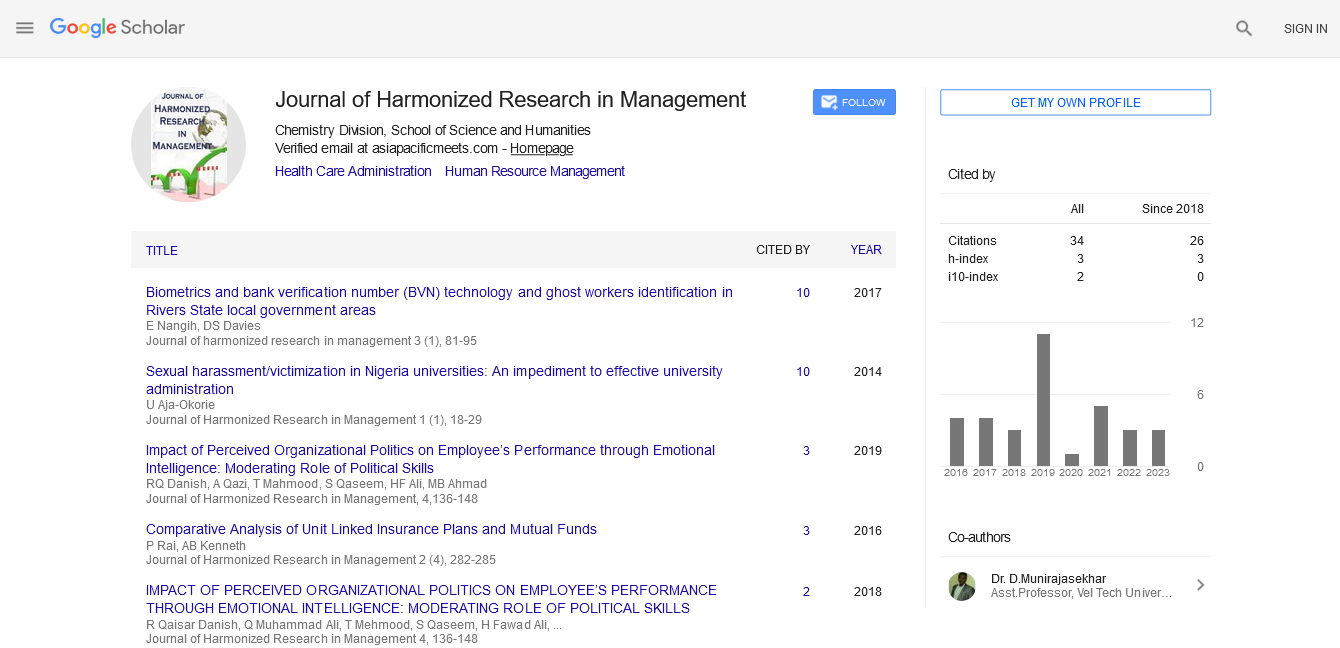INFORMATION COMMUNICATION TECHNOLOGY, KNOWLEDGE AND SKILLS AS MAJOR CONTRIBUTORS AND KEY DRIVERS OF EMPLOYEE PERFORMANCE IN GOVERNMENT PARASTATALS: THE UGANDAN DISCOVERY
Abstract
Author(s): Namara Innocent, Dr.Teopista Nalule Kyamanywa, Irene Musumba, Sr Mary Gorreti Namutebi
This paper has been written using data derived from an empirical study that assessed the influence of organizational resources on employee performance in government parastatals. It was based on a c as e study of Uganda National Bureau of Standards (UNBS). For purposes of this study, organization resources included employees’ knowledge, skills, and use of information communication technology. The following were the objectives of the study: • To examine the influence of skills on employee performance in UNBS. • To evaluate how knowledge influences employee performance in UNBS. • To assess the relationship between Information communication technology and employee performance in UNBS. The findings of the study revealed that UNBS employee skills, knowledge and use of information communication technology (ICT) influence employee performance. Skills were found to be the most significant influencer of employee performance (r = 0.522; p =0.01). It is however evident that UNBS management does not offer regular training (mean = 2.5641), the ICT in place was not user friendly (67% of the respondents), UNBS does not reward efficient employee performance 76.9% and staff morale was not boosted 43.6%. Based on the findings of the study, it was recommended that UNBS carries out regular training, put in place adequate and user friendly ICT infrastructure, ensure that efficient employee performance is rewarded, and put in place motivation moves and incentives to boost staff morale. Keywords: Organization Resources, Information Communication, Technology, Parastatals, employee performance and government policy

Google Scholar citation report
Citations : 92
Journal of Harmonized Research in Management received 92 citations as per google scholar report









